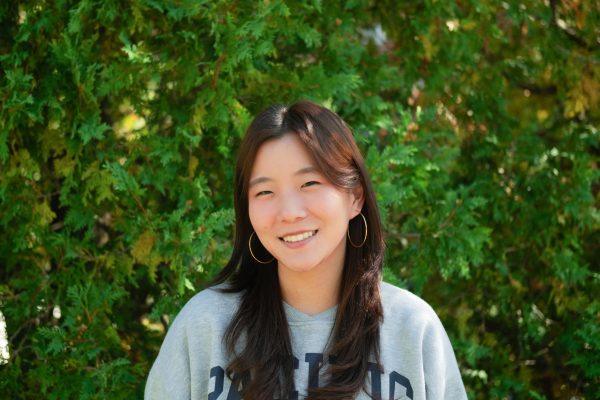For the TikTok ban
By Alexa Willrich, Staff Reporter

Have you ever found yourself scrolling for hours on TikTok? Or have you ever compared yourself to the people in the videos who seem to be the epitome of beauty? These are just a few examples of the harm that TikTok causes to its hundreds of millions of users. On Jan. 18, ByteDance, the Chinese company that owns TikTok, shut down the app for American users before the ban went into place. Less than 12 hours later, the company restored the app for current users. The TikTok ban then went into effect on Jan. 19, and the app is still unavailable for download on any device in the United States. Since the app is unavailable to download, it is also unavailable to update, which will cause the app to degrade due to no bug fixes or improvements. Due to China’s National Intelligence Law, which requires organizations and citizens to cooperate with national intelligence work, the Chinese government could pressure the company for any of the data it has collected. This could lead to the Chinese government having information on millions of Americans, which is one of the main concerns of the United States government at this moment.
According to NPR, TikTok’s algorithm causes users to become addicted to the social media platform in less than 35 minutes. This leads to doomscrolling, where users spend obscene amounts of time on TikTok, depriving users of real face-to-face human contact.
“I think (the TikTok ban is) good because TikTok is messing with our brains and our attention spans,” junior Nicolas Garcia said.
Not only is the algorithm addictive, it is also promoting unrealistic beauty standards. Creators on TikTok can use beauty filters that enhance their appearance. NPR recently revealed that TikTok’s algorithm intentionally promotes people who the company deems more beautiful, which can lead to self-esteem and body image issues. Though TikTok is a way for people to make social connections and creates a sense of community, there are other platforms that have fewer negative effects and also create a sense of community. One example of this is Instagram, which took away many of its beauty filters.
“I’m in favor of the ban because it prevents me from spending countless hours scrolling on short-form entertainment and distracting me from other activities,” junior Rufei Tang said. “It also leads to the promotion of other social media platforms such as Instagram, YouTube and RedNote.”
Hopefully, the harmful effects of TikTok, from doomscrolling to warped expectations, coupled with security risks, are enough to keep the ban in place.
Against the Tiktok ban
By Audrey Kim, Staff Reporter

When the Trump administration proposed banning TikTok in 2020, it framed the ban as a national security measure, bringing up the app’s Chinese ownership under ByteDance. Officials claimed TikTok’s data collection practices could allow the Chinese government to access sensitive information about American users, presenting the ban as a way to protect U.S. citizens from foreign surveillance. But let’s call this what it really was: a political stunt.
On Jan. 20, Donald Trump signed an executive order delaying the ban for 75 days. This decision raises questions about the urgency of the Trump administration’s concerns. If Americans’ data were truly at risk of being leaked to the Chinese government, why delay the ban?
The app itself glorified Trump, with the statement “As a result of President Trump’s efforts, TikTok is back in the U.S.!” appearing on users’ screens after Trump’s executive order, creating the impression that he had saved the app, even though he was the one who called for its ban in the first place.
The reality is that many apps, both foreign and domestic, collect and store vast amounts of user data. Take X, formerly known as Twitter, for example. In 2022, the Department of Justice fined the app $150 million for misusing its user data for more than six years. The next year, more than 200 million X users’ data was leaked online. Despite TikTok’s Chinese ownership, experts like Pellaeon Lin from the University of Toronto’s Citizen Lab have noted that it doesn’t “exhibit overtly malicious behavior similar to those exhibited by malware.” The app was singled out because of its ties to China rather than any proven security threat. Even if the U.S. banned TikTok, users would simply move to other platforms like RedNote, a popular Chinese social media app. According to Reuters, more than 700,000 new users joined RedNote within a span of two days before the TikTok ban. Banning TikTok wouldn’t prevent the flow of U.S. data — it would only redirect the flood of personal data to another platform. Without actual reform, Americans’ data will remain at risk, regardless of which app they use.
Critics of TikTok argue that the Chinese government could use its algorithm to in fluence U.S. public opinion by suppressing or promoting certain content. However, there’s no evidence to support this. The algorithms that TikTok and most other platforms use prioritize engagement, not ideology. Viral trends and popular content drive the algorithm, not orders from governments. If policymakers were truly concerned about outside in fluences, they’d focus on federal legislation rather than targeting one app. Ultimately, the debate over TikTok isn’t about protecting Americans. It’s a distraction from the government’s lack of data privacy protections. Worse, it became a tool for self-promotion and political gain, turning an alleged security concern into a propaganda victory for Trump. The real motivations were political, not protective. TikTok is not just an app — it’s a platform for our expression, and any attempt to silence it should concern us all.
Audrey Kim can be reached at [email protected].
Alexa Willrich can be reached at [email protected].






















































































